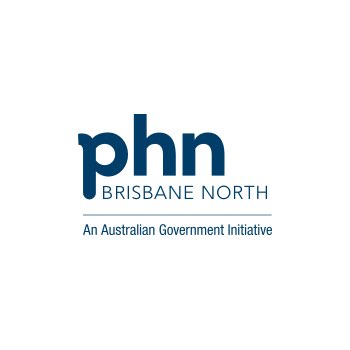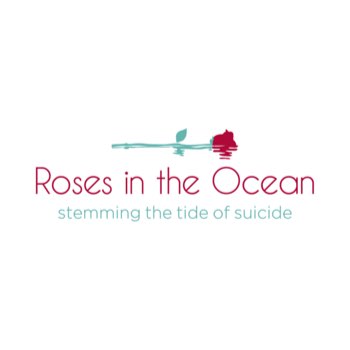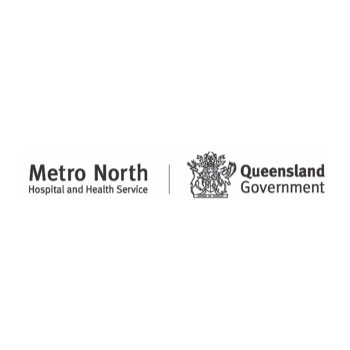
Suicide prevention
The Fifth National Mental Health and Suicide Prevention Plan (the Plan) describes the personal impact of suicide in Australia as profound, with a significant impact on families, communities and society as a whole.
Overview
Facts and figures
Suicide remains the leading cause of death for Australians aged between 15 and 44 years.
Suicide rates among Aboriginal and Torres Strait Islander Australians are at least twice that of non-Indigenous Australians.
Suicide attempts are 3 times more likely for people who identify as LGBTI+ than for the general population
For each life lost to suicide, the impacts are felt by up to 135 people, including family members, work colleagues, friends, first responders at the time of death
Men are 3 times more likely to die as a result of suicide than women.
49.2% of Queenslanders who died by suicide between 2002 and 2011 had at least 1 diagnosable mental illness and 1 in 4 had consulted a health professional about their mental health in the 3 months before they took their own life
Objectives and actions
Action
Planned completion
Status
12.1.1
Continue implementation, delivery, monitoring and evaluation of initiatives and services funded through the Australian Government’s National Suicide Prevention Trial 2017-2019
Planned completion
2022/2023
Status
12.1.2
Identify suicide hotspots and high risk suburbs and high risk industries and explore opportunities to deliver suicide prevention focused initiatives in these areas
Planned completion
2023/2024
Status
notstarted
12.1.3
Embed promotion of the HealthPathways suicide prevention pathway in all relevant communications and collaborate with developers on strategies to enhance usage
Planned completion
Ongoing
Status
On track
12.1.4
Develop, and promote to all Brisbane North organisations, a template for a suicide prevention and postvention plan that incorporates workplace wellness and postvention strategies
Planned completion
2023/2024
Status
On track
Action
Planned completion
Status
12.2.1
Implement the Zero Suicide framework in services/organisations that are funded as part of the HealthCare Multi-Site Collaborative
Planned completion
Ongoing
Status
On track
12.2.2
Investigate, identify and advocate for the use of evidence based guidelines for non-mental health staff, focused on the support of people at risk of suicide who present to hospital
Planned completion
2023/2024
Status
notstarted
12.2.3
Support continued roll out of training in Suicide Risk Assessment and Management in an Emergency Department Setting (SRAM-ED) and regularly monitor evaluation findings to inform advocacy efforts
Planned completion
Ongoing
Status
On track
12.2.4
Seek funding to test and evaluate evidence-informed approaches for involving People with a Lived/Living experience of suicide as a resource in EDs, including those approaches locating peer support workers in EDs
Planned completion
2023/2024
Status
notstarted
12.2.5
Explore options to improve care pathways for people experiencing suicidal crisis and who are currently arriving at Emergency Departments by ambulance
Planned completion
2022/2023
Status
On track
12.2.6
Trial 24/7 safe spaces or other alternatives to Emergency Departments for people experiencing a suicidal crisis who do not require hospitalisation
Planned completion
2021/2022
Status
On track
Action
Planned completion
Status
12.3.1
Identify and prioritise funding for additional assertive follow-up services and for services providing holistic support
Planned completion
Ongoing
Status
On track
12.3.2
Expand capacity of existing providers of specialist suicide prevention services to provide and make referrals to person centered, comprehensive and coordinated support
Planned completion
Ongoing
Status
On track
12.3.3
Develop suicide prevention service delivery models utilising peer service navigators
Planned completion
2022/2023
Status
notstarted
Action
Planned completion
Status
12.4.1
Prioritise the needs of vulnerable and hard-to-reach populations through support for and inclusion of mobile suicide prevention outreach services in suicide prevention initiatives
Planned completion
Ongoing
Status
On track
12.4.2
Improve integration of and connection between existing services focusing holistically on social determinants of health and suicide prevention services
Planned completion
Ongoing
Status
On track
12.4.3
Undertake service mapping to identify current suicide prevention support services and service gaps for veterans and their families
Planned completion
2023/2024
Status
notstarted
12.4.4
Develop and fund specialised bereavement support groups for different cohorts, including for veterans and/or their families
Planned completion
2022/2023
Status
notstarted
12.4.5
Explore strategies for how people experiencing relationship difficulties (ie, the life event most frequently reported as associated with suicide) can be proactively supported
Planned completion
2022/2023
Status
notstarted
Action
Planned completion
Status
12.5.1
Enhance, and make more accessible, support for Families and Carers of people who are suicidal, and others bereaved by suicide
Planned completion
2022/2023
Status
On track
12.5.2
Adjust service models to enable suicide prevention services to provide after hours and weekend services
Planned completion
Ongoing
Status
On track
12.5.3
Develop a register of professionals who have successfully completed advanced suicide prevention training
Planned completion
2022/2023
Status
notstarted
Action
Planned completion
Status
12.6.1
Explore and develop a strategy to better support people engaged with the Family Court for child custody issues, encompassing strategies that target the needs of clients and personnel
Planned completion
2022/2023
Status
notstarted
12.6.2
Deliver community education on recognising, and responding to someone who may be at risk of suicide
Planned completion
Ongoing
Status
On track
12.6.3
Deliver training to frontline workers on recognising and responding to someone who may be at risk of suicide
Planned completion
2020/2021
Status
Completed
12.6.4
Increase opportunities for community members to be involved in suicide prevention efforts by safely sharing their lived experience
Planned completion
ongoing
Status
On track
Action
Planned completion
Status
12.7.1
Facilitate opportunities for GPs to be regularly informed of evidence based recommendations for supporting people at risk of suicide who present to general practice
Planned completion
Ongoing
Status
On track
12.7.2
Encourage GPs to utilise rediCASE and the planned HealthPathways referral pathway to assist them to better match people at risk of suicide with the right services
Planned completion
Ongoing
Status
On track
12.7.3
Promote a whole of practice approach to identifying and managing clients at risk of suicide who present to general practice, through the provision of information, training and resources
Planned completion
2023/2024
Status
notstarted
12.7.4
Increase opportunities for suicide prevention knowledge and skill development for mental health professionals, to enable and promote evidence tailored responses to people experiencing suicidality
Planned completion
Ongoing
Status
On track
Action
Planned completion
Status
12.8.1
Support providers to deliver evidence-informed suicide prevention programs in schools where these programs are not currently available
Planned completion
Ongoing
Status
On track
12.8.2
Support the roll out of the National Education Initiative and identify training opportunities for school staff through the Initiative
Planned completion
Ongoing
Status
On track
Governance
The Suicide Prevention Strategic Partnership Group provides guidance and oversight over implementation of Chapter Twelve – Suicide Prevention within Planning for Wellbeing. The Group was originally established to support development of the Suicide Prevention section of Planning for Wellbeing. Since the launch of Planning for Wellbeing, the Group’s focus has shifted to the provision of guidance and oversight. The Group is comprised of stakeholders and community members with a vested interest in improving outcomes for people who attempt suicide, or are at risk of suicide, as well as their families.
The Suicide Prevention Strategic Partnership Group has direct oversight over implementation of Chapter Twelve – Suicide Prevention within Planning for Wellbeing.



Membership
Angela Campbell
Senior Worker
UnitingCare Community
Bronwen Edwards
Chief Executive Officer
Roses in the Ocean
Donna Bowman
Operations Manager
Metro North Mental Health
Lyndall Stafford
Psychologist
N/A
Mikaela Moore
Lived Experience Representative
Monica Reitano
Zero Suicide Project Officer
Metro North Mental Health
Naomi Laauli
Manager | Mental Health Reform
Brisbane North PHN
Rebecca Johnson
LGBTI+ Community Implementation Team representative
National Suicide Prevention Trial
Ross Williams
LGBTI+ Community Implementation Team representative
National Suicide Prevention Trial
Shana Challenor
Director
Suicide Prevention Pathways Inc.
Tanya Raineri
Program Development Officer
Brisbane North PHN
Achievements
Suicide prevention initiatives across the region are implemented in line with Black Dog Institute’s LifeSpan model which combines nine evidence-based strategies for suicide prevention into one community led approach incorporating health, education, frontline services, business and the community. The LifeSpan model recognises that multiple strategies implemented at the same time are likely to generate greater effects than if implemented individually.
Summary of achievements Oct 2018 - Sep 2019
Actions to achieve this objective focus on the improved integration of system-based responses to people at risk of suicide across the region. The implementation of the National Suicide Prevention Trial in the target populations of Aboriginal and Torres Strait Islander Australians and the LGBTIQ+ community is central to efforts to improve the system-based response. In addition, strategies focusing on improving responses in public spaces, workplaces and in general practice have all commenced.
People in suicidal crisis report that the noise and pace of a hospital Emergency Department is not always the best place for them to visit in crisis. Initiatives within this objective have involved exploring alternatives to Emergency Departments for people who do not require hospitalisation and examining the potential for people with a lived experience of suicide to contribute to the care received by people in Emergency Departments. The rollout of training to support Emergency Department staff complements this broader work.
Actions within this objective focus on the delivery of high-quality follow-up and support after a suicide attempt, with clear evidence that access to high quality after care reduces the risk of future suicide attempts. Initiatives include the commissioning of The Way Back Support Service in Redcliffe and dedicated suicide prevention psychological service providers through the Brisbane MIND program.
The development of strategies focusing on the support of vulnerable population groups including veterans, homeless and disadvantaged young people and those experiencing relationship difficulties forms the basis of this objective. Actions related to this objective aim to address the specific issues and challenges faced by vulnerable populations through enhancing accessibility and appropriateness of services to specifically meet their individual needs.
This objective acknowledges the importance of providing flexible access to suicide prevention services, information and resources and is being achieved through several means including the funding of The Way Back Support Service to enable initial patient contact within 24 hours of referral. To support this, the development and delivery of the Reasons to Stay campaign supported consumers by providing links to high quality online materials and facilitating access to support services across the region through its dedicated website. In addition, the Suicide Care Pathway hosted on the My Mental Health website enables consumers to access information on crisis and non-crisis services across the region.
The role of the community, including those with a lived experience, in identifying and appropriately supporting people at risk of suicide is the principle of this objective. The delivery of community education as a component of the National Suicide Prevention Trial is a key achievement within this objective. In addition, the funding and establishment of a Lived Experience Community of Practice that enables community members to contribute to suicide prevention efforts by safely sharing their lived experience has been a highlight with plans for the expansion of this Community of Practice currently in discussion.
This objective acknowledges the pivotal role of General Practice in identifying and appropriately responding to people at risk of suicide. Supported by Wesley Lifeforce, almost ninety GPs, practice nurses and practice staff were upskilled in identifying and responding to suicidality. The finalisation of the Suicide Risk pathway in HealthPathways has provided GPs with assistance to better match people at risk of suicide with the right services.
With research indicating over half a million young Australians experience a mental health condition each year and particularly alarming statistics related to self-harm and suicide in school aged children, school-based suicide prevention programs are a priority in the Brisbane North region. November 2018 saw the launch of the first national framework to support Australian schools to enhance mental health literacy. Be You, is an initiative of headspace, Beyond Blue and Early Childhood Australia and has been implemented in 67% of secondary schools across the Brisbane North region.
Success stories
Working towards zero suicide in Redcliffe-Caboolture
Objective 12.2: Improve care and follow-up provided on presentation at MNHHS EDs, and on hospital discharge, to people experiencing a…
Establishing a suicide prevention community of practice
Objective 12.6: Increase community knowledge about, and skills in, recognising and responding to suicidality Action 12.6.4:…
Implementation of the National Suicide Prevention Trial
Objective 12.1: Improve and integrate suicide prevention responses on a systems-wide basis in Brisbane North Action 12.1.1:…

